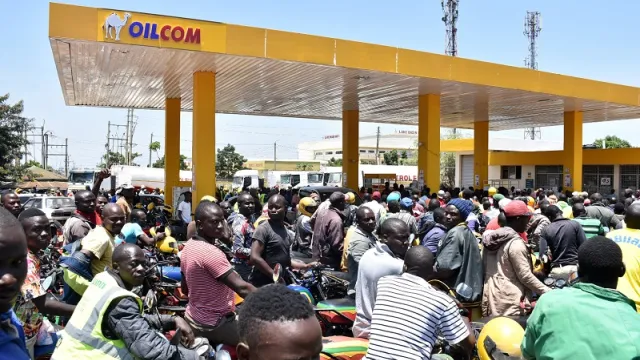World Bank sees Kenya's growth easing to 5.5 percent as fuel bill drags recovery

World Bank sees Kenya's growth easing to 5.5 percent as fuel bill drags recovery
The World Bank projects that Kenya's economic growth may slow to 5.5 percent this year, largely attributable to rising global oil costs that have given led to increased commodity prices.
Kenya, which is the region's giant economy posted 7.5 percent economic growth last year following the resumption of business across many sectors of the industry upon the easing of Covid-19 curbs.
The new forecast, Kenya Economic Update published on Tuesday, is a review of the 4.9 percent said previously, reflects a stronger-than-expected recovery from the coronavirus pandemic, the report notes.
"The impact of higher oil prices is not only limited to a rise in the import bill but would also extend to increased cost of production and transportation impacting the utilities, manufacturing and services sectors," the survey said.
Though Kenya has limited direct trade and financial links with Russia and Ukraine, the war is expected to impact the Kenyan economy through higher global commodity prices, tighter global financial conditions, and slower global growth, the lender noted.
“Offsetting the strong economic momentum generated by the pandemic recovery is the impact of the war in Ukraine,” according to the World Bank report. It has “clouded the outlook for the global economic recovery.”
Read also: Impose taxes on the entire tobacco value chain – WHO
Currently, Kenya's fuel subsidies bill is an average of $66 million per month, which is putting fiscal pressure on revenue recovery that had gathered momentum following a rebound in the economy last year.
“A strong recovery in revenues has supported fiscal performance but this is now being countered by the cost of subsidizing fuel,” according to the report. “The limited passthrough of higher international oil prices to consumers is generating fiscal costs.”
Agriculture is a key pillar of the Kenyan economy and crops are primarily rain-fed, however, adverse weather conditions in the last four seasons are posing the biggest risk to the economic outlook.
The “worsening” drought is having a “devastating effect on food security and livelihoods in affected parts of the country and is necessitating increased social spending on food assistance,” according to the report.
Since last year, the Kenyan industrial sector has been staging a recovery, supported by the easing of mobility restrictions and the policy focus on infrastructure and affordable housing
Overall, the global economy is projected to weaken as policy accommodation is withdrawn to combat inflation, compounded by higher food and energy prices due to the war in Ukraine.



